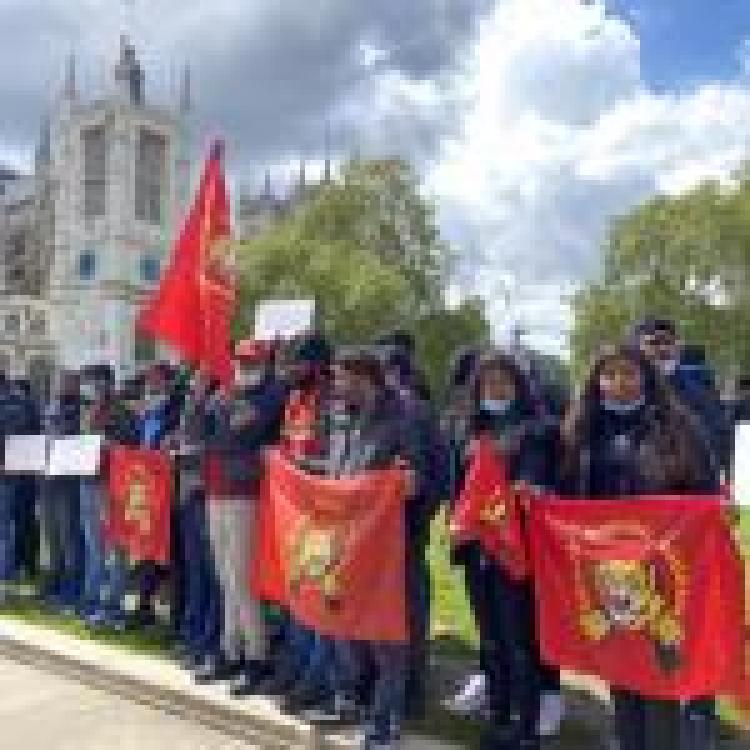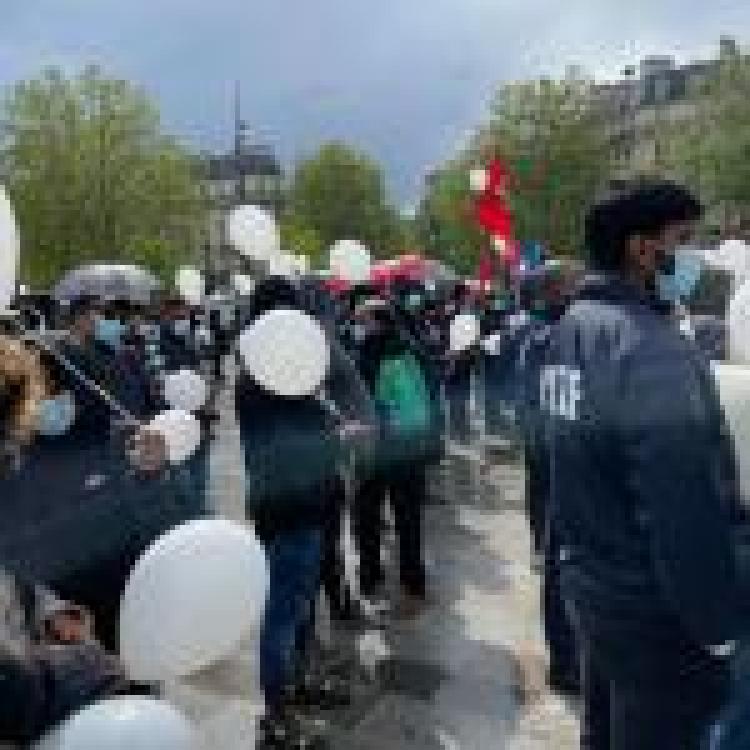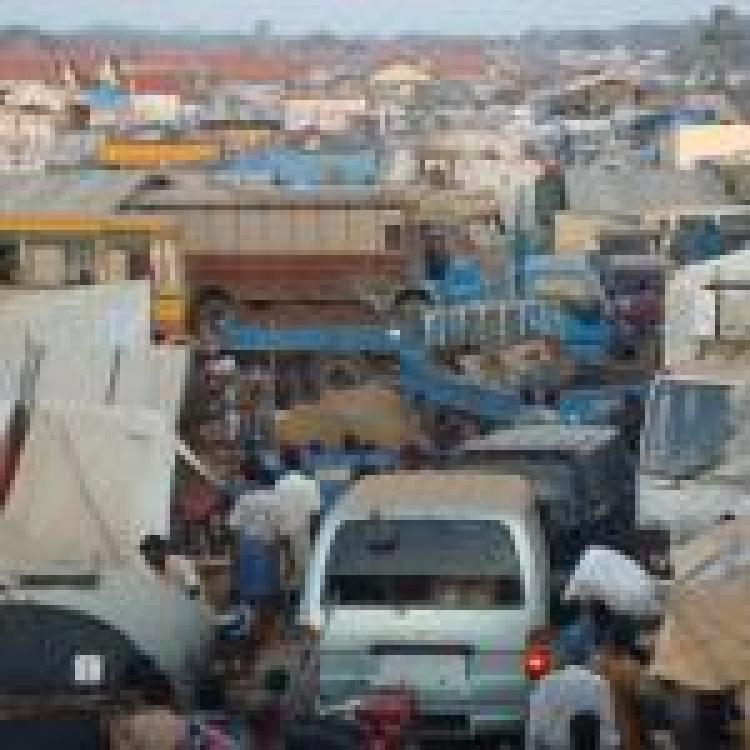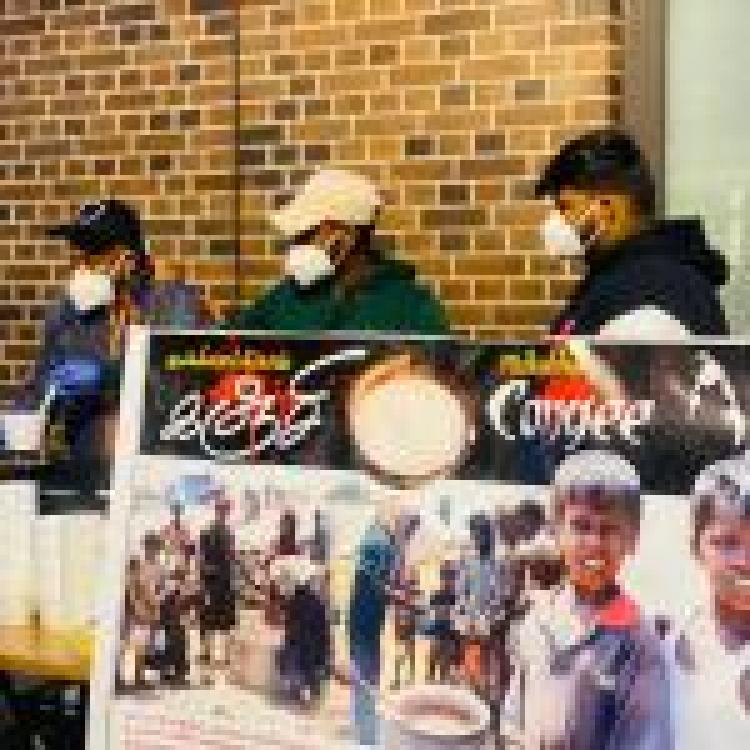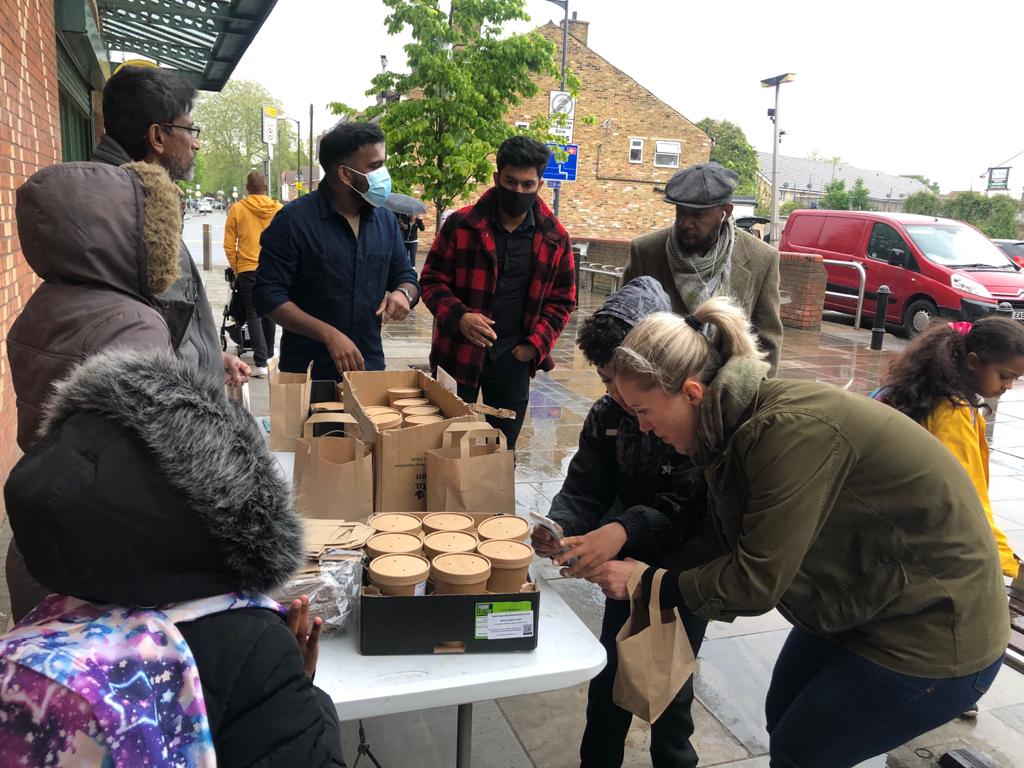
Volunteers serving kanji on Mitcham High Street, South West London
British Tamils served kanji across greater London boroughs on Tamil Genocide Remembrance Day, to honour the victims and survivors of the Mullivaikkal genocide 12 years ago.
Kanji - a porridge of rice and water - was the only food available to Tamils trapped in the Sri Lankan government declared 'No Fire Zones' as food, medicines and other necessities were heavily restricted from entering the Vanni during the final phase of the armed conflict.
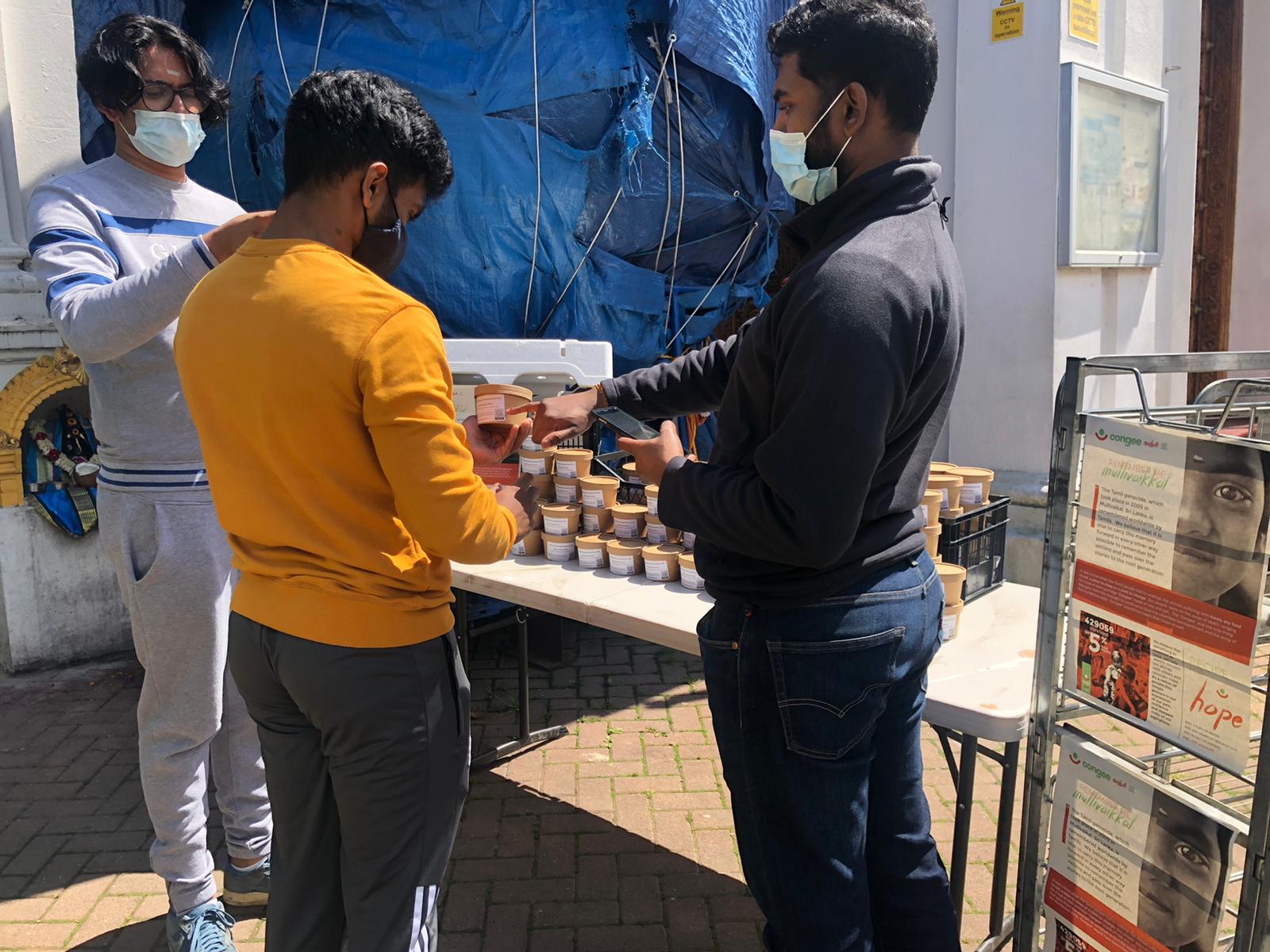 Ealing Amman temple, West London
Ealing Amman temple, West London
This year, Congee of Hope, a group of Mullivaikkal survivors called on the global Tamil community and allies to serve kanji on May 18 to pay homage to the victims and survivors of the massacre that took place in Mullivaikkal and host safe conversations within families and the community.
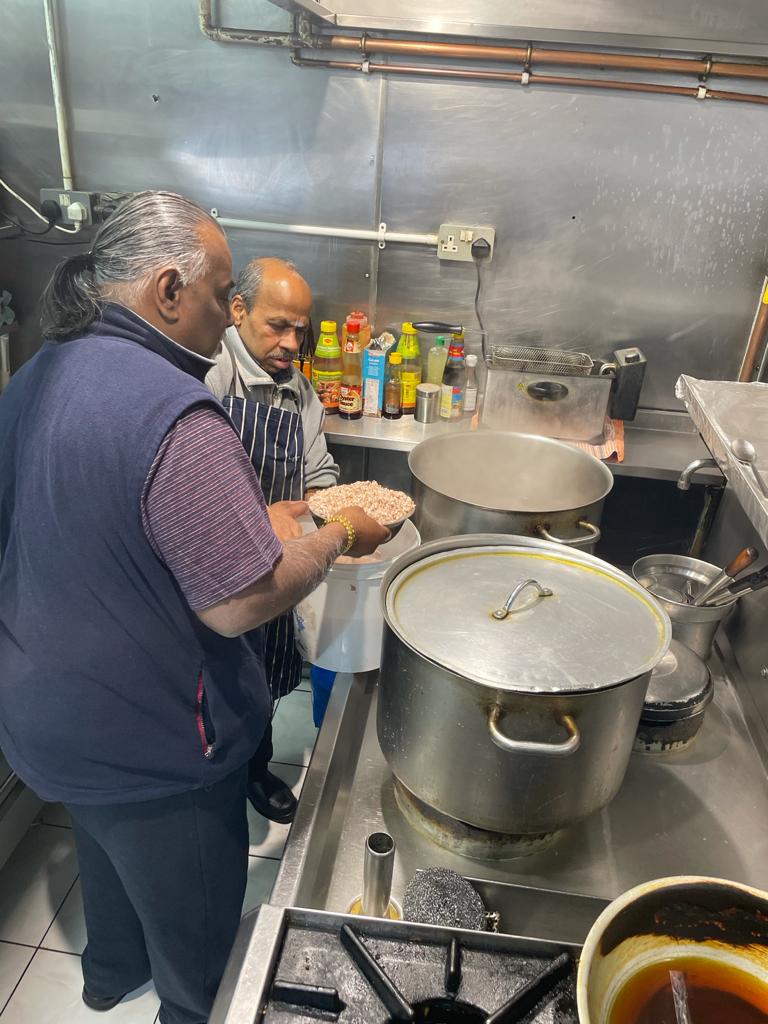
Kanji being prepared before distribution
The Sri Lankan government denied the delivery of food into the conflict zones, to use starvation as a weapon of war. Even as Tamils stood in long queues to get a bowl of kanji, the Sri Lankan military continued their daily bombardment, slaughtering many.
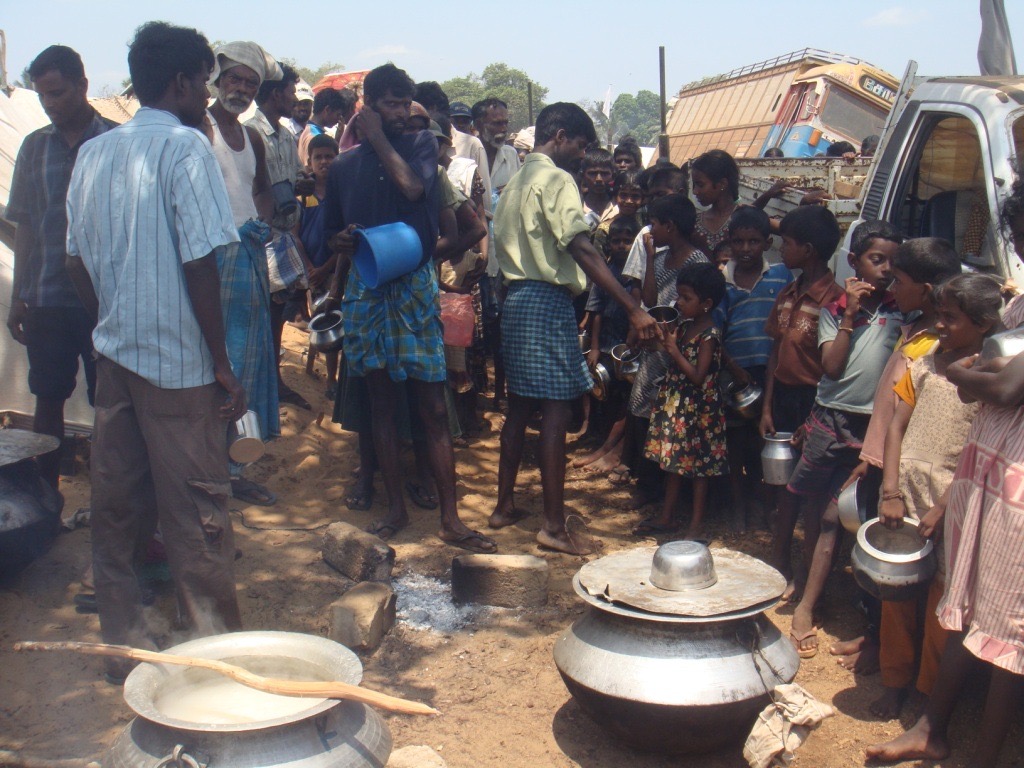
Tamils being served Kanji in May 2009
"The 'Congee' was the only thing that gave them the strength to continue to face the relentless bombardment and the army of the heinous state [...] We sincerely believe that something as essential as food will help connect others and resonate our stories deeper adding hope and help build resilience as our identity. This simple gesture is seen as an expression of the pain and deepest roots of our aspirations," the group said in a press release.
As part of the global movement, British Tamils liaised with local councils, temples and restraurants and with the support of volunteers, thousands of cups of kanj were servedi across the capital. Each cup had a QR code linked to www.RememberMay2009.com, a resource that maps out the atrocities that took place during the final months of the armed conflict.
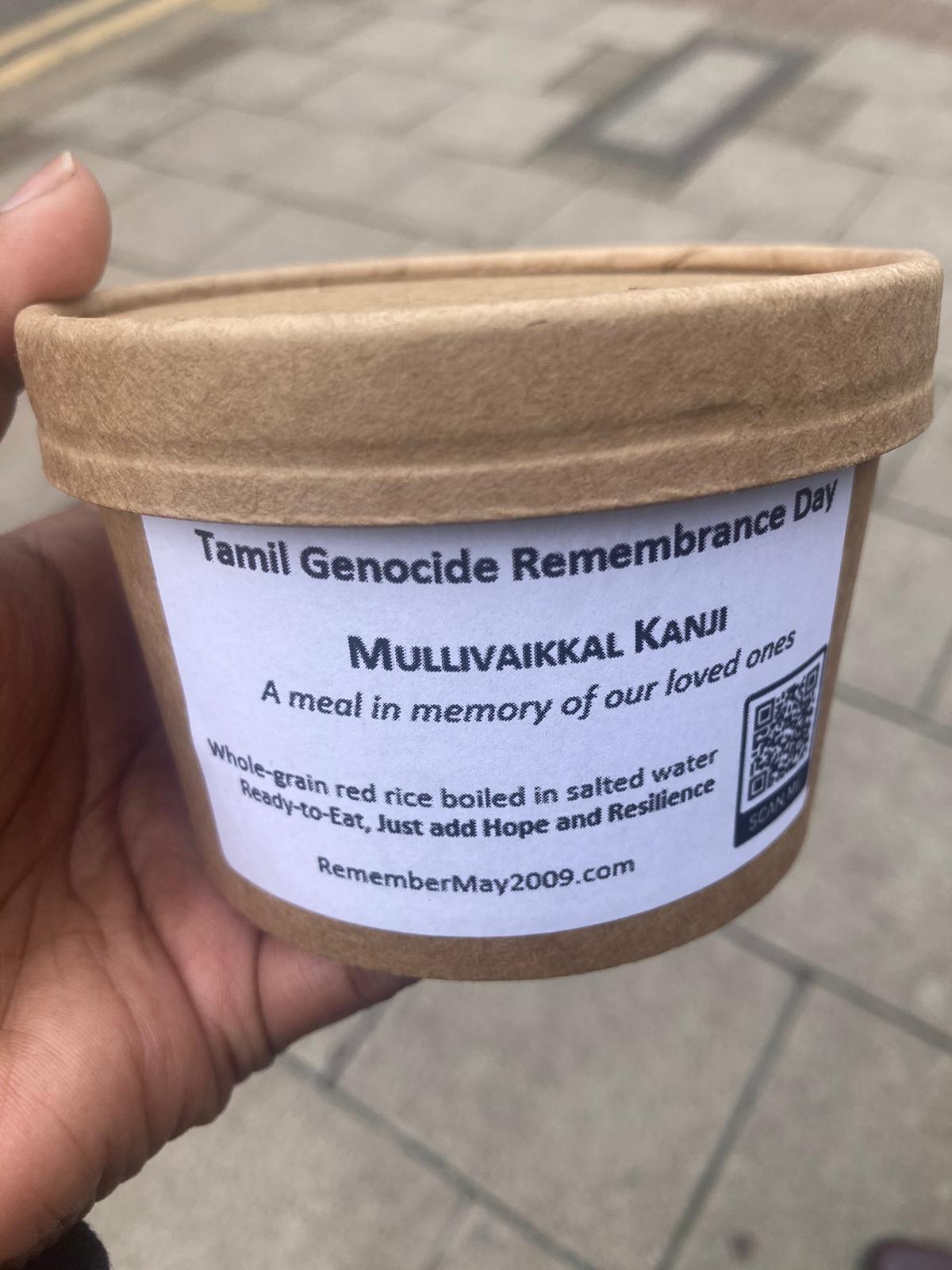
The website features a comprehensive timeline of January to May 2009, an interactive map of the diaspora’s protests in 2009, a diverse range of reflections from the Tamil polity, and a gallery of artwork commemorating Mullivaikkal.
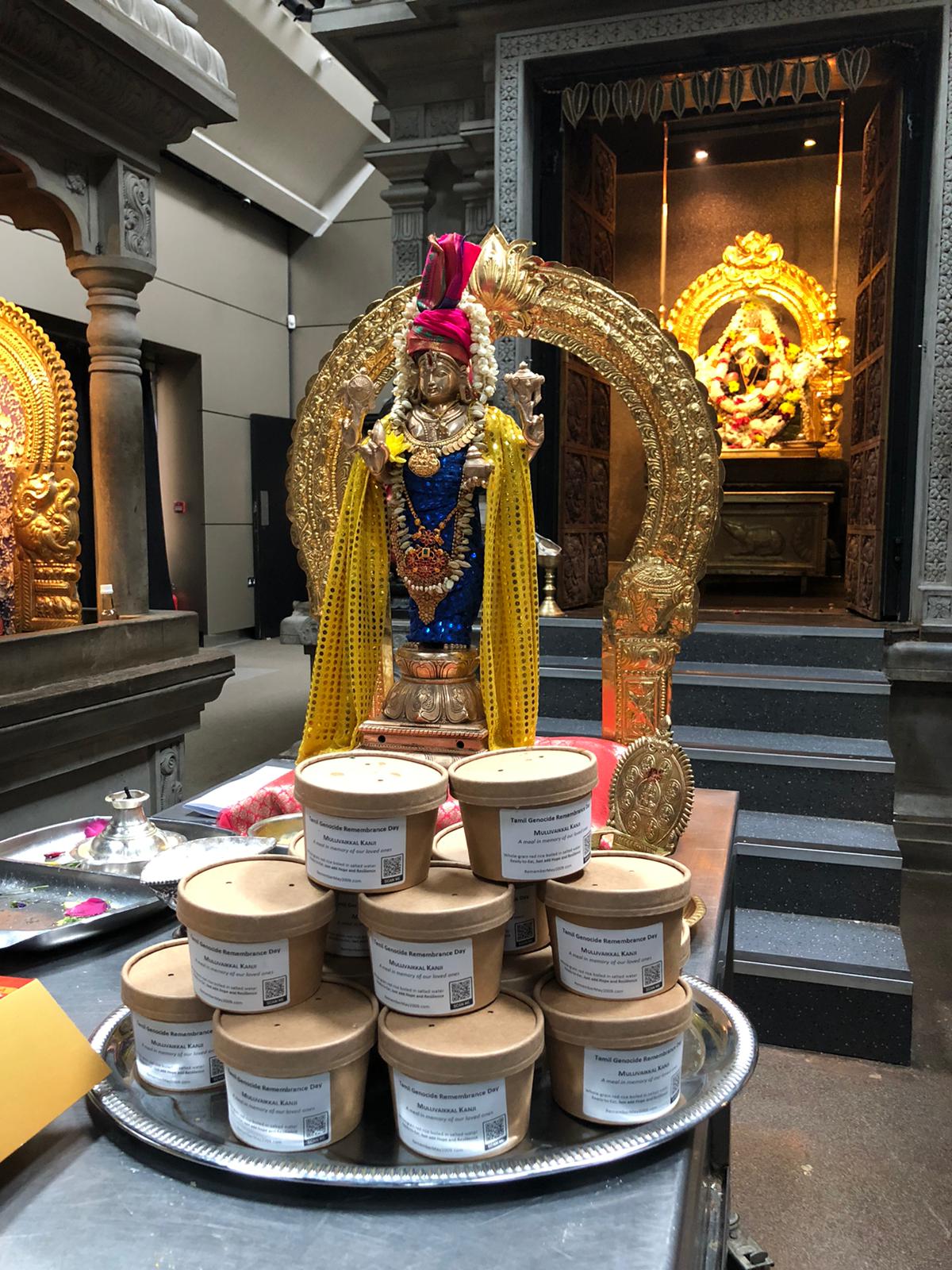
Wimbledon Pillaiyar Temple
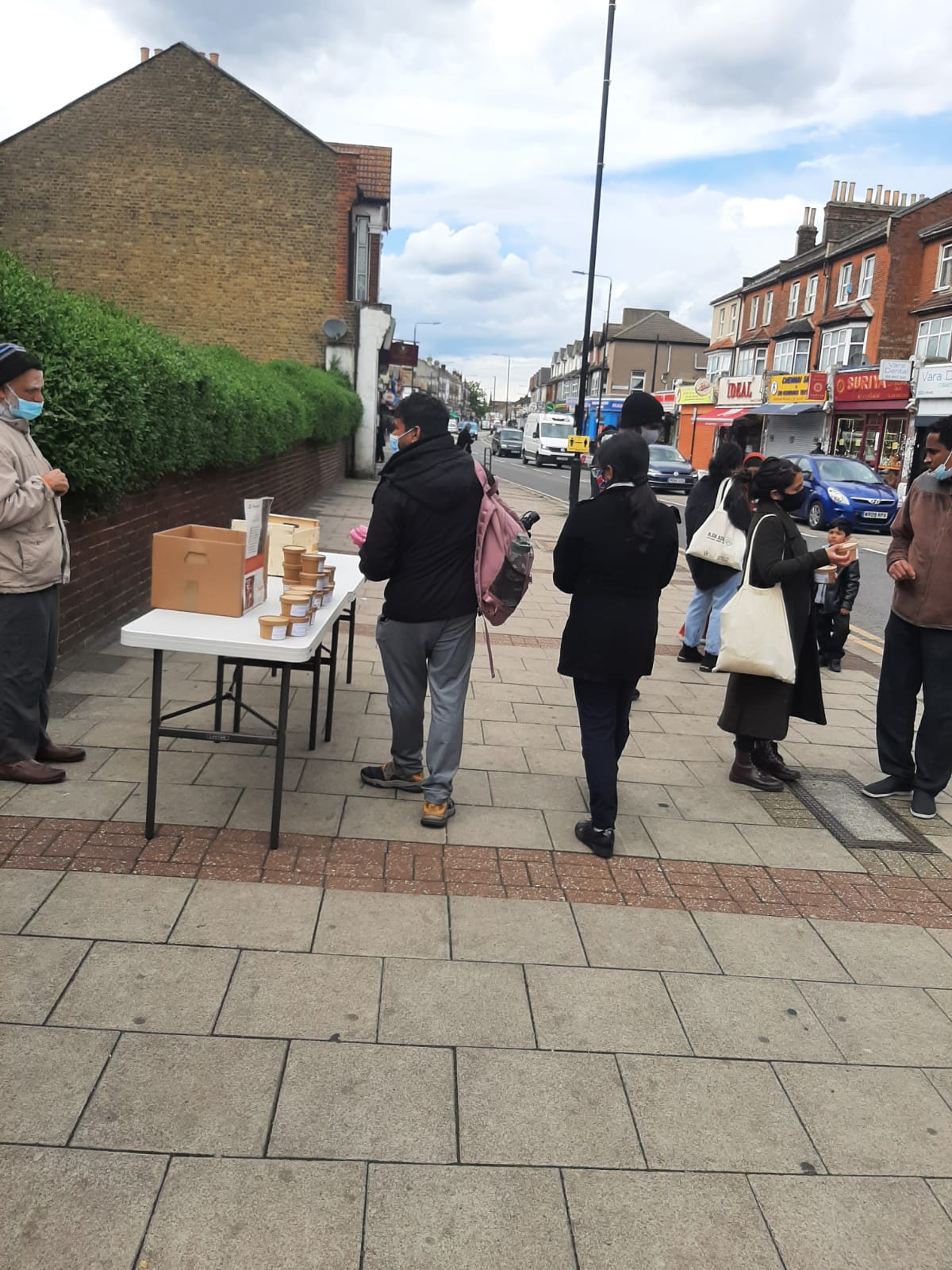
Eastham High Street, East London
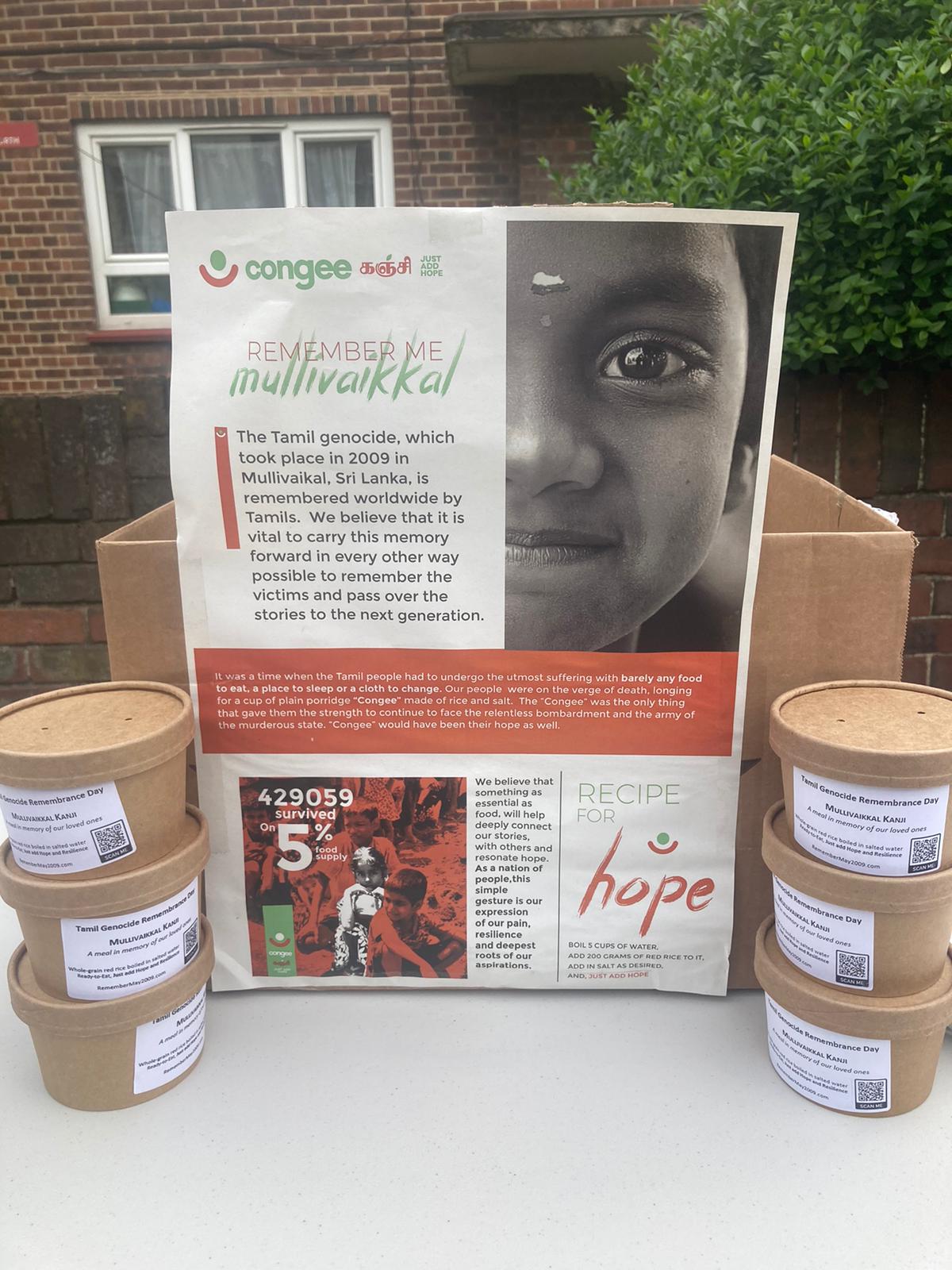
See more from Congee of Hope.

